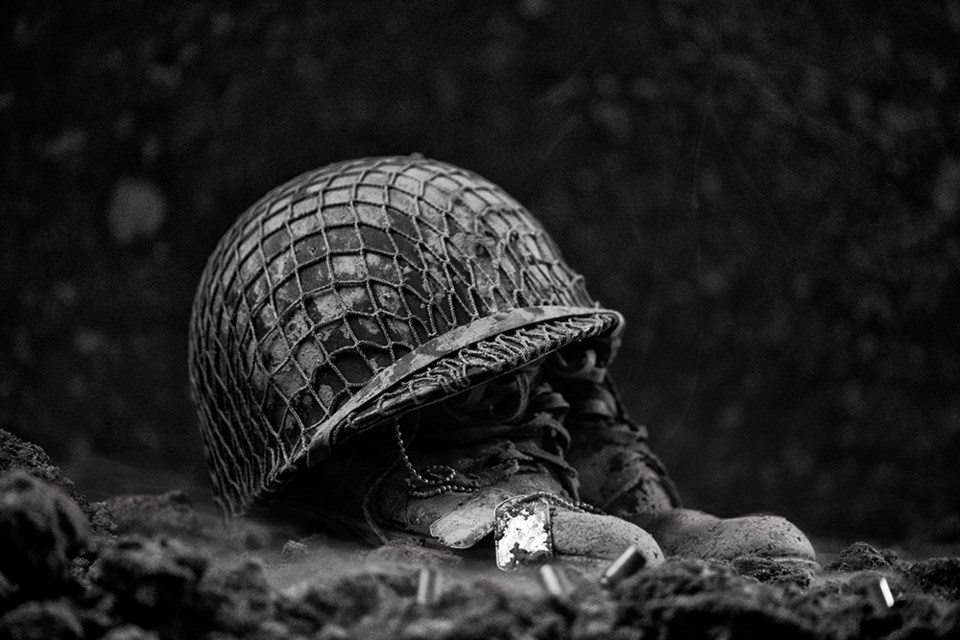He who fails to learn from the past risks having it repeat.
The seeds of the Second World War, or, as the Russians would have it, the Great Patriotic War, were sown in the 1930s with the Second Sino-Japanese War (that began in 1937) and the Spanish Civil War (1936–1939). The latter conflict, documented by American writers Ernest Hemingway () and for Collier’s Magazine and British writer George Orwell (), saw pro-democracy Republicans defeated by General Franco’s Fascists.
While thousands of Americans fought for the Republican cause in volunteer militias, U.S. President Franklin D. Roosevelt refused to commit U.S. regular forces. With German support, Franco’s Fascists defeated the Republicans, setting the stage for Hitler’s war on Europe and Japan’s war on the United States.
The lessons of the 1930s are obvious: isolationism and appeasement, rather than securing the peace, invite catastrophe.
In the 1930s, America believed its isolationism would deliver peace and prosperity at home. Instead, it delivered the 1941 Pearl Harbour sneak attack and four years of war. Today, Donald Trump believes his America First posture – a re-run of 1930s American isolationism – will deliver peace and prosperity to his Make America Great Again (MAGA) disciples. It will not. It will deliver an unstable Europe, a face-off between NATO and Russia and, possibly, a nuclear exchange.
Trump, his Senate, House of Representatives and MAGA supporters are deluded. Rather than securing the peace, Trump’s policies may produce World War Three. Trump is not a moron, as some have suggested. He may be an ignoramus, however. He was ignorant of the fact that Britain possesses nuclear weapons. He suggested to Ireland’s Prime Minister that a border wall would solve the post-Brexit trade dispute, apparently ignorant of the fact that a hard border would likely reignite the Troubles. Trump likely knows little about the causes of the Second World War. A second Trump presidency would create a latent error or resident pathogen – a disaster waiting to happen – in world politics.
Fortunately for freedom and democracy, it is beginning to dawn on some European leaders that the time has come to provide war-winning support to Ukraine. The calculus is simple: saving Ukraine makes a Third World War less likely. Leaving Ukraine to slowly bleed to death makes a Third World War more likely.
Ukraine is presently bleeding to death. Its critical national infrastructure is being destroyed at an alarming rate. Its soldiers are involved in a bloody, slow-motion fighting retreat. Faced with human-wave attacks (the same tactic Russia used in the Second World War), Ukrainian positions, lacking adequate artillery and close air support, are frequently overwhelmed. Russia can afford to sacrifice men, women and equipment. Ukraine cannot.
To date, three European leaders have told the truth about Ukraine’s precarious position: French President Emmanuel Macron, Estonian Prime Minister Kaja Kallas and Polish Prime Minister Donald Tusk. Europe’s other leaders (should they be called leaders?) are in denial. Macron, supported by Kallas, has, gadfly-like, floated the idea of putting boots on the ground in Ukraine. Tusk, whose government has increased defence spending to four percent of GDP, has warned that Europe is in a ‘pre-war’ era. Said Tusk: “War is no longer a concept from the past. It is real, and it started over two years ago”.
What is the remedy?
A Coalition of the Willing – initially Estonia and France – should, at Ukraine’s invitation, deploy armoured formations, artillery and close air support assets to the Ukraine-Belarus border, thereby allowing Kyiv to redeploy assets from the north to the south and east, where the fighting is most intense. Bilateral deployments would deny Putin the opportunity to claim he was under attack from NATO.
Once Russia’s advance has been halted, other countries – initially Latvia and Lithuania – will likely join the Coalition. Having stabilized the front line, a no-fly zone should be implemented over Ukraine, reducing the number of attacks on Ukraine’s critical national infrastructure and front line. It is difficult to see how other European countries could remain on friendly terms with France, Lithuania, Latvia and Estonia if they remained aloof. If nothing else, self-interest would oblige them to join the fray.
There would, of course, be an element of quid-pro-quo in this escalation. Ukraine would have to cast its conscription net more widely to generate a larger standing army and convert – with Western help – more of its economy to war production.
As to where European intervention would leave the United States, it is difficult to see how the U.S. could remain aloof. The costs – loss of moral authority, reduced influence around the globe, alienation of allies, loss of trading partners and, possibly, charges of cowardice – would be too great. Even an administration as self-interested, myopic and asinine as that promised by Trump would be shamed into action.
Plus ça change. In 1939, Europe’s democracies stood alone against Fascist Germany. In 2024, they stand alone against Fascist Russia. Tusk is right. Free Europe faces a new Dark Age that will consume it unless it fights. Churchill’s words of 16 October, 1938 are apposite: “The lights are going out; but there is still time for those to whom freedom and parliamentary government mean something”.
Act now.
Dr. Simon Bennett directs the Civil Safety and Security Unit at the University of Leicester. He’s interested in the organizational, social, economic and political origins of risk. He has worked with the Royal Air Force and U.K. National Police Air Service on human factors issues. His latest book, , was published by Libri Publishing Ltd. in 2023.
©




